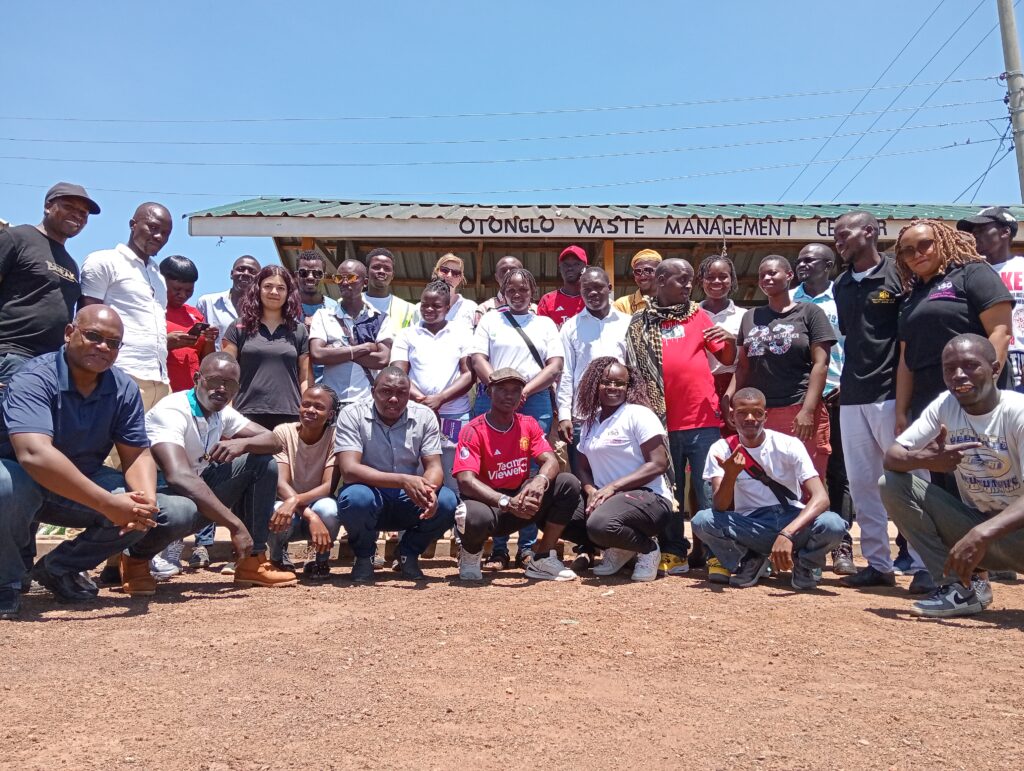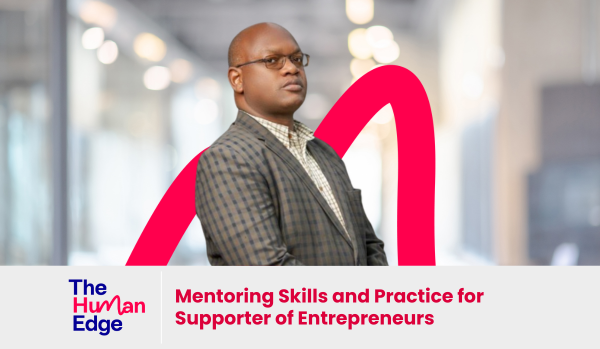Patrick Magara, a social development practitioner, has spent over 15 years guiding young people to live a purposeful and meaningful life. In his current role as National VSO volunteer in Kisumu in Kenya, he works closely with waste collectors, helping them navigate challenges and explore opportunities beyond selling recyclables. But as he engaged more deeply in mentoring, he realised he needed a stronger set of skills, tools, and techniques to better support his mentees in different contexts.
That’s what led him to the Mentoring Skills and Practice (MSP) programme. He wanted to refine his mentoring approach—learning structured techniques that could help him guide conversations more effectively.
“I always saw mentoring as a way to share knowledge and help mentees avoid mistakes,” Patrick reflects. “But through the programme, I’ve come to appreciate the power of asking the right questions—ones that encourage mentees to think critically and uncover opportunities they may not have considered before.”
One of Patrick’s biggest challenges in his mentoring work has been breaking the cycle of stagnation. Many young waste collectors he supports see selling plastic as a means to survive, not as the foundation for something bigger. “They don’t necessarily see themselves as entrepreneurs,” Patrick explains. “They think, ‘This is what I do. I collect, I sell, and that’s it.’ But what if they could create something more sustainable, more impactful?”
Through the MSP programme, Patrick learned how to use structured approaches like the OSCAR model to guide mentees beyond their comfort zones. By asking powerful questions, he helped them think critically, set clearer goals, and develop a growth mindset. One of his mentees, a young woman who initially sold only bulk plastic, realised she could resell reusable plastic bottles at a higher price. With this shift in strategy, she doubled her income.
Patrick immediately put his new skills into practice. During a leadership training session, he introduced tools like the Johari Window and the Wheel of Life—concepts he learned in the MSP programme—to help mentees gain self-awareness and identify growth areas. “It was a lightbulb moment,” he says. “They began to see leadership in a whole new way.”
In another instance, he worked with a group of waste collectors on refining a business idea. Rather than simply advising them, he used frameworks like Theory U to challenge their assumptions and guide them towards a more sustainable model. The result? A pivot toward organic waste solutions, including biogas and liquid fertiliser—an initiative now actively taking shape.
Patrick is now working to integrate formal mentoring into the “Waste to Work’ project, which supports 25 groups of waste collectors in Kisumu and many more across Mombasa and Nairobi. His vision is to embed structured mentoring into these initiatives— ensuring entrepreneurs receive ongoing guidance at both individual and group levels.
But his ambitions go beyond his immediate work. Passionate about making mentoring more accessible in Africa, Patrick is exploring how cultural symbols can be woven into mentoring frameworks and working to challenge the notion that mentoring is only for corporate spaces.
“Mentoring is still seen as something that belongs in HR or big businesses,” he says. “But it needs to be accessible to communities, entrepreneurs, and young people trying to build a future. We need to train more mentors and create mentoring circles where practitioners can exchange ideas and support each other.”
For Patrick, mentoring isn’t just about guiding others—it’s about evolving alongside them. “As I help others grow, I grow too,” he says. “And that’s the beauty of it.”

Patrick took part in the Mentoring Skills and Practice for Supporter of Entrepreneurs Course in September 2024. The programme involved 123 mentors from 16 countries across SSA and MENA. For more details on the Mentoring Skills and Practice Course, click here.

